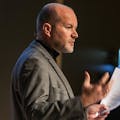When I set out on a journey in search of Capitalism 2.0, a few years ago, I was surprised at what I found — not just in terms of the range of possibilities for a more sustainable system, nor the level of radical change that will be required to deliver a real shift in our economies and our lives. The real surprise was the extent to which many of the potential solutions are already available.
The more I looked, the more I found – and, viewing the scene through a wider lens of sustainable economics, it became possible to see the pieces of a very interesting jigsaw come together, bringing into focus an attractive picture of a new, vibrant, attractive, and sustainable economic operating system.
Another important insight came from reflecting on the scope of the changes needed. If we do what is truly required, if we no longer seek to exploit people and resources, in the name of accumulating and concentrating wealth — if we no longer focus on the primary interests of financial capital alone, can we still call it Capitalism? If what we are left with is a new and sustainable system that no longer resembles Capitalism — what would we call it? Sustainable Economy just seemed like a more appropriate working title – although, I am sure the debate will rumble on.
I also found something important for the soul – genuine cause for hope, generated by the very real sense that a new system is already manifesting – an economy within which people and businesses are able to prosper, within planetary limits. A quiet revolution is already under way – if we could just allow it to flourish.
Hope often travels hand-in-hand with frustration. I could also see that, while a new system is desirable and possible, and that change is already under way, we are currently nowhere near a tipping point, whereby the new system takes over from the old, rendering it obsolete, and transforming into a new (sustainable) mainstream. There is still a very long way to go.
These sparks of hope and frustration led to further insights and a realization that it might be possible to help accelerate the transition, by promoting greater awareness of the issues and the very real possibilities — ultimately, to enable more conscious choices by people, businesses, and our civic leaders, to start the migration towards a better system.
And so, the Sustainable Economy Project was born, out of a desire to create a better economic system — coupled with a passion to encourage a progressive form of economic activism that will help achieve this aim.
Our initial agenda for change focuses on a number of key leverage points — from changing the goals and mechanics of our system of economy, to new models of business success and investing, new financial and banking systems, new institutions and greater systemic resilience, re-localized economies, to new education curricula and models for learning. There is much work to be done.
We have been quietly establishing the infrastructure to help amplify our efforts around the world in support of accelerating the tipping point in the transition towards a sustainable economy.
A key part of this picture is a growing network of progressive business schools and universities, from around the world; they can play a major role in forming the new economy. By expanding their remit, they can act as catalysts in each region, shifting the conversation and creating a shared agenda for change within their respective business and political communities.
The next step on this life-affirming journey is what we have published today — Reframing the Game, a Sustainable Economy Special Edition of the Building Sustainable Legacies Journal.
Reframing the Game has been devised to generate a real melting pot of progressive thinking, from some of the leading players in the often separate worlds of business and academia. Enabling collaboration across these boundaries will be so important in making real change happen in our world.
Each of the contributions in this Journal helps to challenge our views on what is possible and also provides us with concrete actions on how we can make genuine progress. Many of the themes also align with the Sustainable Economy Project’s agenda for change.
Paul Polman — the pioneering CEO with Unilever — sets the pace, with inspirational views on the instrumental role of business in generating a radical shift in our economies. With 2015 seen as a pivotal year, Polman reminds us that businesses have a major impact — not just in terms of their sustainability footprint — but, also in their ability to influence change at scale. By harnessing their energy, expertise and resources they can drive transformational change at a systemic level. He urges businesses to be more radical.
That we need to be playing a different game is becoming increasingly recognized. Even mainstream commentators like the FT’s Martin Woolf are calling for new and radical approaches in the running of our economies. Isabel Sebastian picks up this challenge with great gusto, and makes a great case for promoting Wellbeing Economics as a means of re-framing the game of economy and commerce. She includes practical proposals for the business and policy agendas — and how we can look beyond CSR to create the dynamic space for genuine business and economic transformation.
Transformation necessarily requires us to rethink our institutions, including our legal frameworks — do they adequately support our aims, or do they hinder the changes we need to make?
“
Change we must — if we are to make the necessary transition to a sustainable world. By collaborating across boundaries, and joining up the dots across the many great works that already taking shape, we can all help accelerate a much needed tipping point.
Business law is not usually included in the discourse on how to achieve a sustainable future and, thankfully, Beate Sjafjell helps us to redress the balance. Sjafjell recognizes that neither the voluntary contribution of business, nor the current regulatory framework is sufficient in driving the level of change that is needed. She puts forward an elegant argument for reforming company law — what she refers to as the regulatory ecology of companies — including duties for the board to draw up a long-term, life-cycle based business plan. Radical, yet good business sense, when you think about it.
Another key enabler for radical change is, of course, leadership — and transformational leadership requires the right mindset. Jeanrenaud and her colleagues offer us the ‘One Planet’ mindset, as a powerful lever for transforming self, business and society, in the contested transition towards a sustainable economy. They help us to understand what a ‘one planet’ mindset is and how this state of being provides an essential condition, if we are to frame business and economics in a way that will truly enable a sustainable future.
Leaders, of course, need roadmaps and models — to help them communicate the nature of their journeys, and how they will be made. Which models work best: should we create top-down mandates, or should we try to shape more organic and grassroots oriented movements for change, from the bottom-up? Jill Bamburg helps us to see that we should waste little time on this sterile debate, and through her work on change models, facilitated by her 2x2 to change the world, she helps us to see that it is, indeed, all good work.
In developing all the new approaches required for change, we start to gain a deeper appreciation of the value and the instrumental role of education. If we don’t research and teach the right things, how can we hope to gain the skills and insights that will enable us to change the world in a robust manner?
Notwithstanding the trailblazing efforts of a few leading lights, Suzanne Benn and her colleagues note that business schools are often lagging other sectors in recognizing the growing importance of sustainability concerns in business decision-making. As a result, emergent themes such as cooperative capitalism or new business models are neglected in business school curricula. Through the lens of the boundary objects Benn and her colleagues propose that both educators and their students should transcend disciplinary boundaries, and engage with knowledge from different disciplinary areas, to facilitate a systematic and integrated approach to sustainability.
Going further into the mechanics of transformation, Katrin Muff introduces the Collaboratory — a methodology that provides an exciting template for radical re-imagination and redesign of business schools, in finding a mission that is relevant to the challenges of our time and which makes a meaningful contribution to society. Her approach is engaging and deep - and can be deployed as an influential alternative vehicle for wider public debate and problem solving. This approach will surely become the new normal for transformation management.
A key theme, right through this edition concerns the fundamental question, what is the purpose of business? So, it is fitting that we round off this collection with a living example of a major global business that is reinventing itself — to put real purpose at the heart of its business strategy.
Gabi Zedlmayer, Chief Living Progress Officer with HP, shares how her business is integrating ‘purpose’ at the very heart of strategy — to reach beyond incremental improvements, to create innovative and transformative solutions that connect customer needs with human, economic and environmental impacts. As Zedlmayer describes, the results can be game-changing.
Change we must — if we are to make the necessary transition to a sustainable world. By collaborating across boundaries, and joining up the dots across the many great works that already taking shape, we can all help accelerate a much needed tipping point. I hope you find something of real interest in this collection, and perhaps something you can take with you into your own realm of influence, towards a sustainable economy.
Michael Townsend is f











